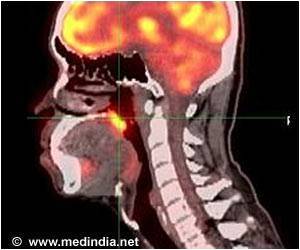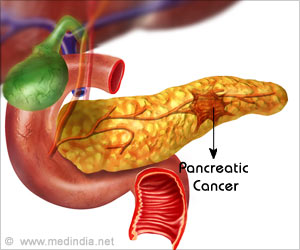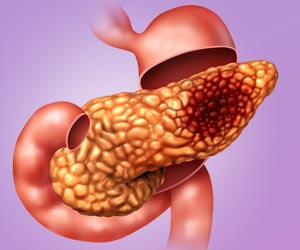- Tongue coat microbiome in pancreatic cancer patients is altered and is different from that in healthy individuals
- This difference could help develop rapid diagnostic tests that could help in early detection of pancreatic cancer
- Early detection, coupled with prompt treatment could prevent the progression of this highly aggressive cancer
This new study has been published in the Journal of Oral Microbiology, a publication of Taylor & Francis, UK.
The study was led by Dr. Lanjuan Li, MD, who is a Professor of Infectious Diseases and Director, State Key Laboratory for Infectious Diseases, Zhejiang University, Hangzhou, China.
Read More..
Background of the Study
The incidence of pancreatic cancer is approximately 10,000 people annually in the UK. Of these, less than one percent survive for more the ten years. Therefore, an early diagnosis of the disease is extremely important for the prompt institution of treatment, before cancer spreads to other parts of the body i.e. undergoes metastasis. However, early detection is difficult, as the pancreas is located deep within the body and doesn’t show symptoms until the cancer is in an advanced stage. As a result, by the time patients seek medical help, cancer has already metastasized.Ongoing research for the early detection of pancreatic cancer focuses on looking for biological changes that could help in identifying early signs of pancreatic cancer. This would enable the development of screening tools that could detect cancer at an early stage.
In this regard, the gut microbiome has been found to be a very promising target. Interestingly, previous studies have shown significant changes in the microbiome of the saliva, intestine and stool samples in pancreatic cancer patients compared to healthy controls.
Key Features of the Study
The main features of the study are highlighted below:- This is the first study to characterize the tongue surface coat microbiome of pancreatic cancer patients and compare with that of healthy individuals
- Participants included 30 end-stage pancreatic cancer patients and 25 healthy individuals
- In the pancreatic cancer cases, the tumor was located in the ‘head’ region of the pancreas
- Age of the participants ranged between 45 and 65 years
- Participants did not have any other disease or oral health issues
- Participants did not take any antibiotics or other drugs in the preceding three months of the study
- Microbiome diversity of the tongue surface coat was characterized by using state-of-the-art gene sequencing technology
Key Findings of the Study
- There was a stark difference in the microbiome of the tongue surface coating of pancreatic cancer patients, compared to healthy individuals
- The degree of colonization by four types of bacteria was studied. In pancreatic cancer cases, the following were noted:
- Colonization by Haemophilus and Porphyromonas was low
- Colonization by Leptotrichia and Fusobacterium was high
- The degree of colonization by the above four bacteria could differentiate between pancreatic cancer patients and healthy individuals
Concluding Remarks
The research team has indicated that the immune system could act as a link between alteration of the microbiota of the tongue surface coating and pancreatic cancer. They believe that if this link could be established, it would help in developing new treatment strategies involving immunotherapy, antibiotics or probiotics to modulate the growth of bacteria on the tongue surface coating, which could prevent pancreatic cancer in high-risk groups.“If an association between the discriminatory bacteria and pancreatic cancer is confirmed in larger studies, this could potentially lead to the development of new microbiome-based early diagnostic or preventive tools for the disease,” said Li.
Funding Source
The study was funded by the National Natural Science Foundation of China, the National S&T Major Project of China, the China Postdoctoral Science Foundation, and the Natural Science Foundation of Zhejiang Province, China.Reference:
- Tongue Coating Microbiome Data Distinguish Patients with Pancreatic Head Cancer from Healthy Controls - (https://www.tandfonline.com/doi/full/10.1080/20002297.2018.1563409)
Source-Medindia
















